Keep your mechanic happy and your car in top shape by avoiding some common bad habits. From skipping oil changes to ignoring warning lights, these mistakes can lead to costly repairs and headaches.
Not Doing Routine Maintenance

Modern vehicles require precise maintenance to function properly. Skipping routine checks like oil and coolant changes can lead to significant damage. For instance, engine coolant prevents overheating and internal corrosion. However, it degrades over time. Ignoring these needs can result in costly repairs like replacing the water pump or radiator.
Ignoring Smells

Unusual smells in a vehicle often signal serious problems. A burning oil smell indicates a leak. It can potentially cause a fire. A rubber-burning odor could mean a failing drive belt system, risking engine damage and breakdowns. Break-related burning smells suggest malfunctioning brakes. Addressing these smells promptly can prevent major repairs and ensure safety. It emphasizes the importance of regular vehicle checks.
Expecting a Free Diagnosis
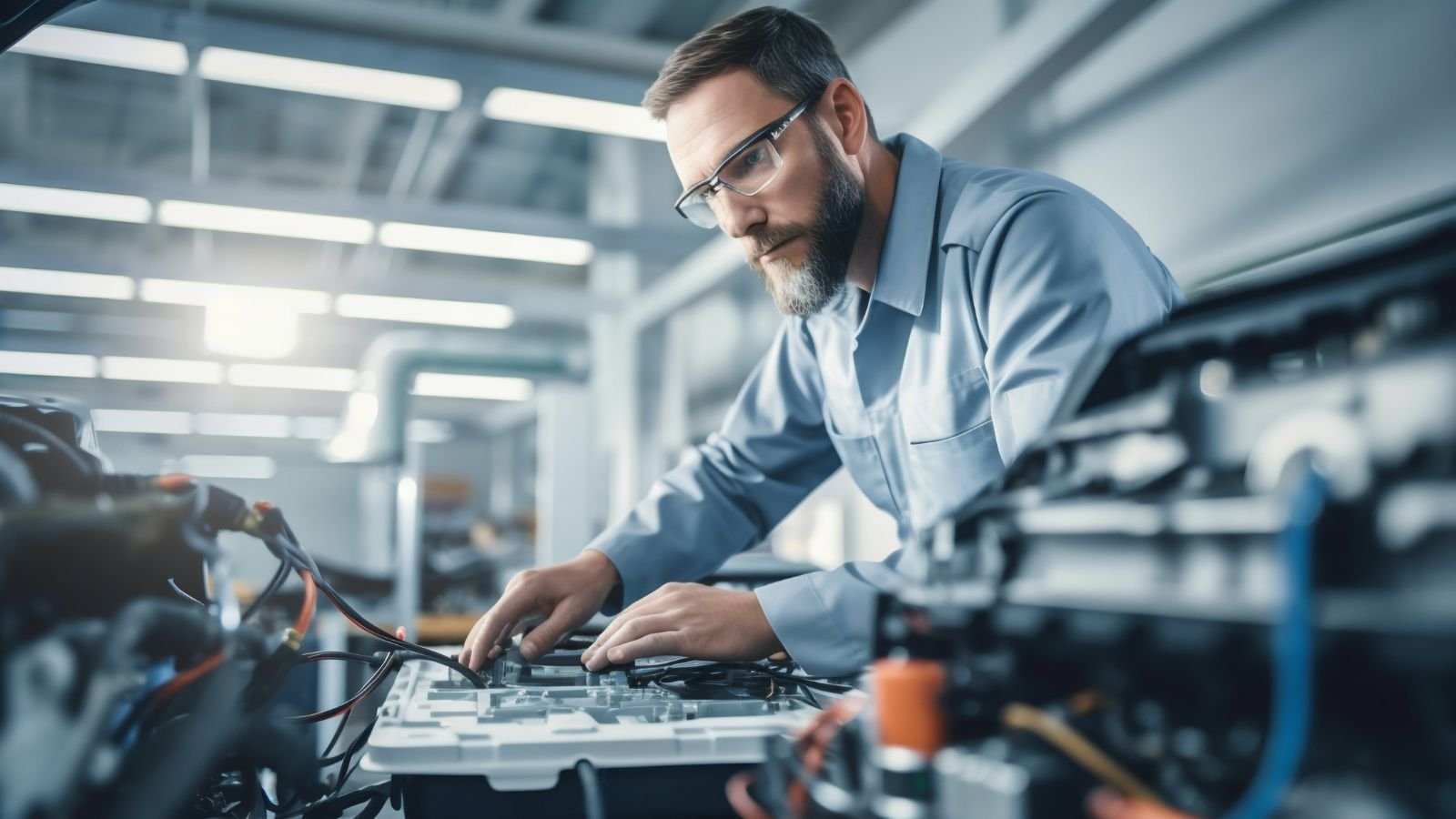
Diagnosing car issues goes beyond reading trouble codes. Skilled technicians perform thorough checks. It includes consulting technical bulletins, testing wiring, and conducting road tests. This process can take over an hour and requires expertise. Auto parts stores may offer free code readings, but these are not comprehensive. Paying for professional diagnosis ensures accurate problem identification and effective repairs.
Driving an Overheated Car

Modern aluminum engines are sensitive to overheating, which can cause gasket failures and extensive damage. Older engines might have endured overheating. However, current engines can suffer severe harm. If overheating occurs, pulling over and calling a tow truck is essential. Continuing to drive can lead to various problems where you may need to fix the head gasket or catalytic converter, or even replace the engine entirely.
Ignoring Check Engine and Other Warning Lights
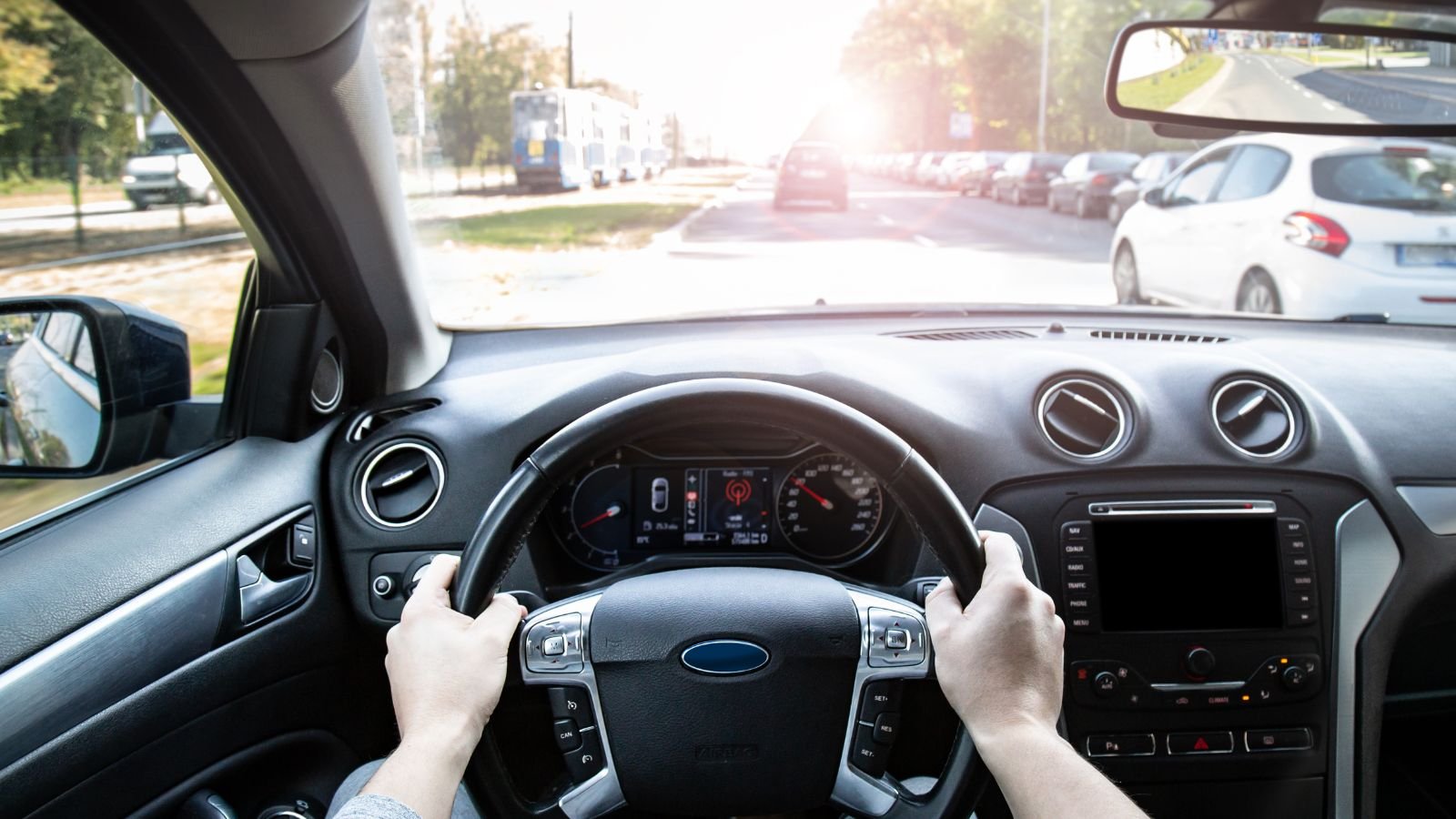
Drivers often dismiss the check engine light, assuming it is a minor issue. However, since 1996, vehicles have been using the OBD II system which monitors various components, not just emissions. Ignoring these lights can lead to severe engine or transmission damage and cost you thousands. That’s why you should always get your vehicle checked promptly when warning lights appear.
Driving on Worn Tires
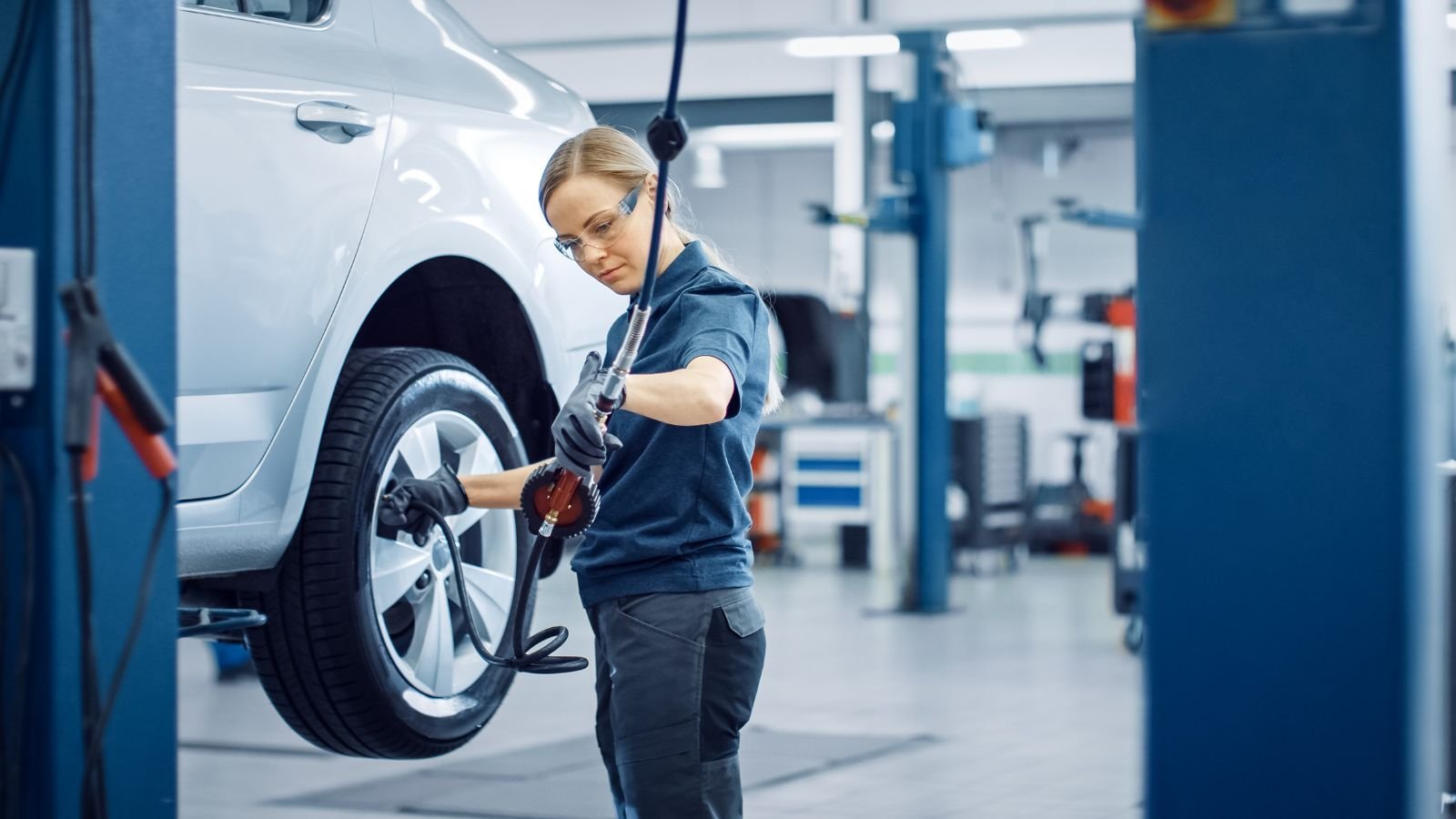
Pushing tires to their legal limit of 2/32 inches can be dangerous and costly. Tests show that worn tires significantly reduce traction. This increases the stopping distance and risks of accidents. Replacing tires when they reach 4/32-inch tread in summer and 6/32-inch in winter. Its depth improves safety and prevents damage from accidents. Investing in new tires before they wear out can save money on repairs and ensure a safer driving experience.
Putting Fluids in the Wrong Places
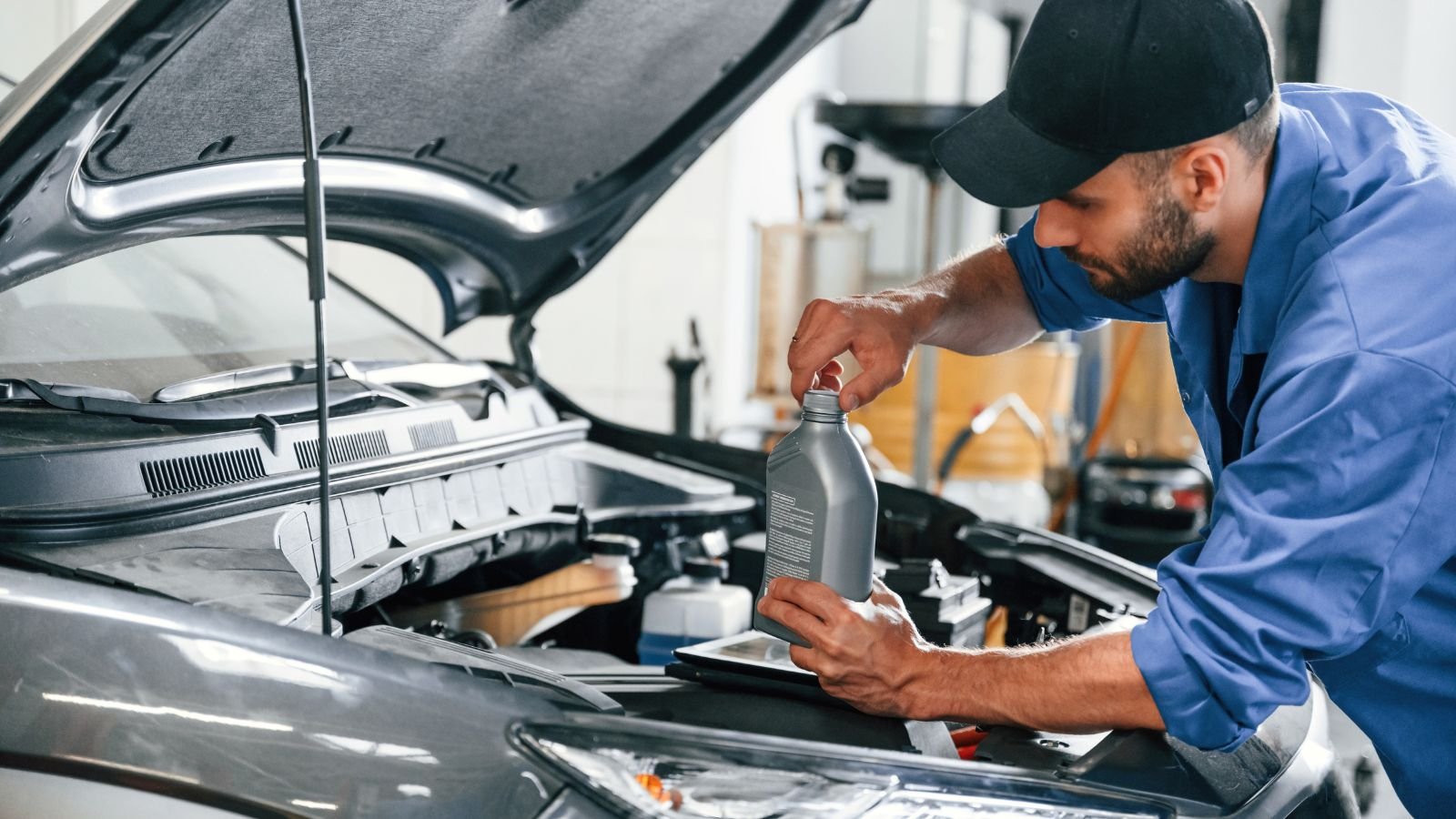
Mixing up fluids can cause severe damage to vehicles. It is essential to double-check before adding any fluids to avoid costly mistakes. For instance, putting brake fluid in the engine can lead to significant issues. Being cautious and following the vehicle’s manual helps ensure the right fluids go in the right place. This helps in maintaining the health of your vehicle.
Ignoring Oily Stains on Your Driveway

Oily stains under your car indicate fluid leaks. This can lead to major issues like engine, power steering, or transmission failure. Identifying the type of fluid by its color and texture helps pinpoint the problem. Checking fluid levels and addressing leaks quickly with a mechanic can ensure your vehicle’s safety.
Purchasing a Car without Professional Inspection

Buying a used car based on looks alone is risky. Hidden issues can surface later, costing more than an inspection would. Spending around $200 on a professional inspection can reveal problems you might miss. It is wise to agree on a price contingent on a clean inspection. This can save money and ensure the vehicle is in good condition, making the purchase worthwhile.
Ignoring Unusual Noises

A healthy vehicle should not make strange sounds like squealing, clunking, or grinding. These noises often indicate issues such as drive belt problems, brake issues, or suspension failures. If you do not take timely actions, it can result in more damage. If you hear unusual sounds, it is essential to have the vehicle inspected promptly to prevent further complications.
Telling Them What to Fix

Instructing mechanics on specific repairs without a professional diagnosis puts mechanics or shops in difficult positions. If the suggested fix does not solve the problem, the shop gets blamed. Mechanics prefer to diagnose issues themselves to ensure accurate and effective repairs. This leads to better outcomes when it comes to maintaining the health and performance of the vehicle.
Shifting to or from Reverse while Moving

Switching between drive and reverse while moving can damage the transmission. Automatic transmissions rely on an electronic switch and sensors. On the other hand, manual transmissions depend on properly adjusted cables. Misusing these systems can cause significant wear and tear. To avoid costly repairs and your vehicle’s functionality, always come to a complete stop before changing gears.
Not Driving Your Car at All

Vehicles are designed for regular use, and letting them sit idle for long periods can cause issues. Driving a few miles every few days keeps the battery charged and prevents problems. If a vehicle will be unused for an extended time, using a smart charger helps maintain the battery. Regular use ensures all systems remain functional and prevents deterioration.
Buying a Cheap Brake Job

Brake jobs vary widely in price, with shop shops offering specials as low as $99. However, these deals often lead to upselling, resulting in higher costs than a standard brake job. This can typically range from $250 to $350. Quality brake pads alone cost about $75, and labor is expensive. It is better to choose a trustworthy shop with fair pricing to avoid hidden costs and ensure reliable brake repairs.
Withholding Information
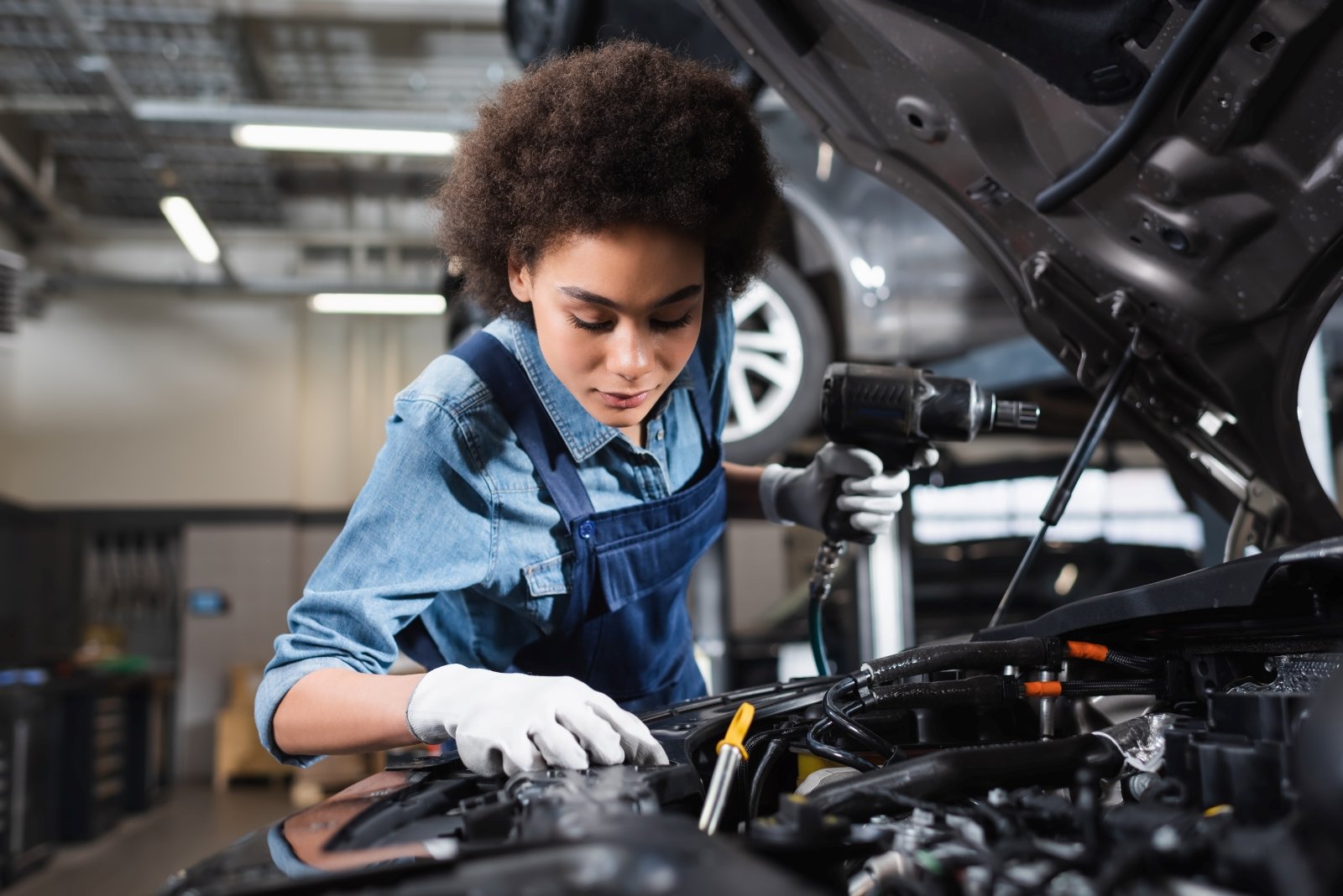
Mechanics need complete information to diagnose and fix issues efficiently. Withholding details can prolong the repair process. Observing and noting symptoms like unusual noises or performance changes helps mechanics identify problems faster. Sharing all relevant information ensures quicker and more accurate repairs. It is vital to communicate clearly with mechanics to achieve the best result.
